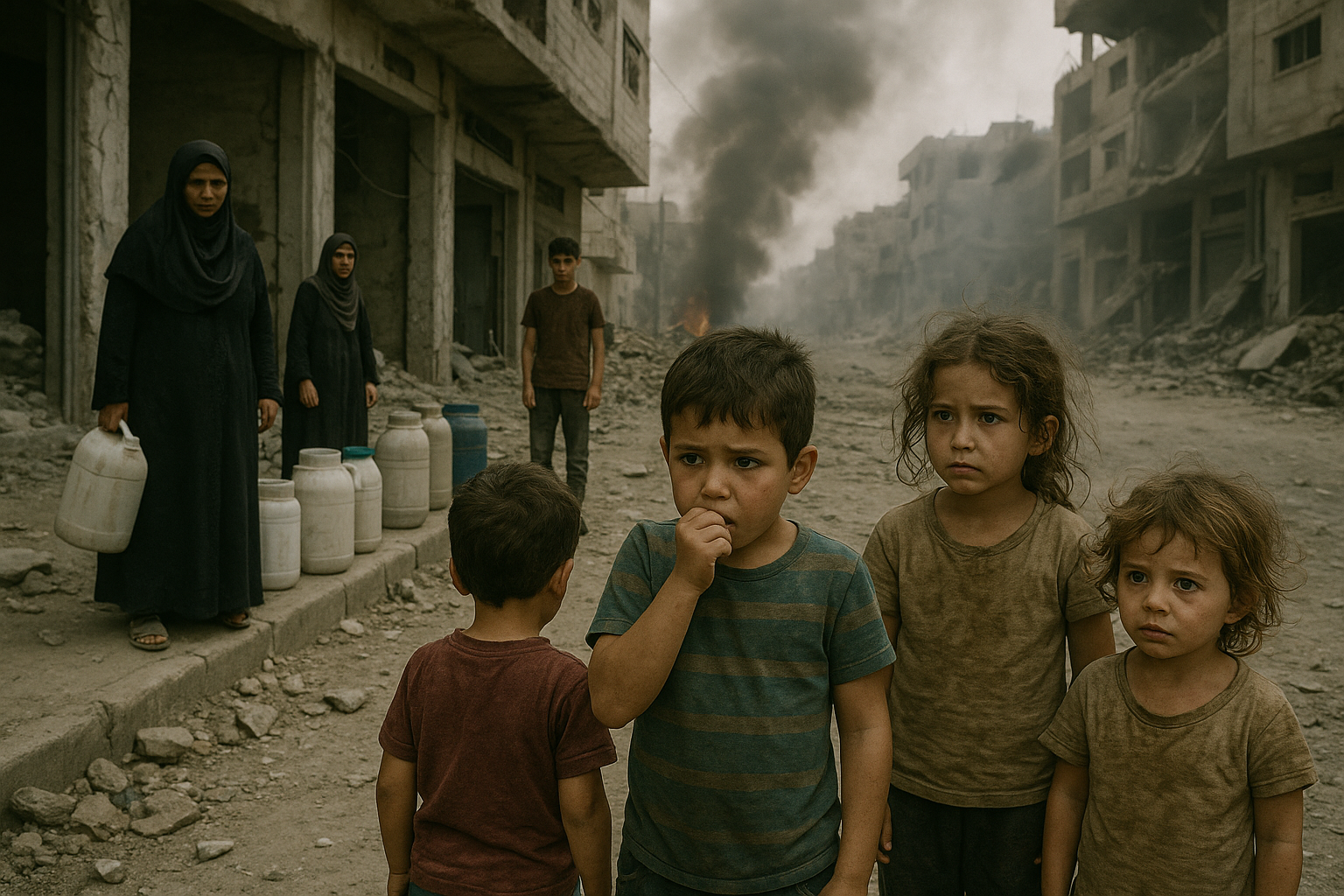UNICEF Urges Immediate Ceasefire as Gaza’s Children Face Unrelenting Crisis
According to UNICEF’s latest statement, over 64,000 children have reportedly been killed or maimed since the escalation of hostilities began nearly two years ago.

The United Nations Children’s Fund (UNICEF) has issued one of its strongest appeals yet for an immediate ceasefire in Gaza, warning that the war has pushed children to the edge of survival and humanity itself to a breaking point. After more than 700 days of unrelenting conflict, children in Gaza continue to bear the heaviest toll of violence, famine, and displacement.
According to UNICEF’s latest statement, over 64,000 children have reportedly been killed or maimed since the escalation of hostilities began nearly two years ago. Among them, at least 1,000 infants have perished — either directly from bombardment or from preventable causes linked to hunger, disease, and the collapse of Gaza’s health system.
“Children in Gaza have endured horrors that no human being should ever experience,” UNICEF said. “They are being killed, maimed, starved, and traumatized in a war that defies every principle of humanity and international law.”
Famine, Malnutrition, and the Collapse of Health Care
The humanitarian situation in Gaza is catastrophic. Famine has taken hold in Gaza City and is spreading southward, exacerbating already dire conditions in Rafah and Khan Younis. UNICEF and its partners warn that malnutrition among infants and young children has reached critical levels, with long-term consequences for growth, development, and survival.
Many families are surviving on minimal food rations — often one meal a day or less. Health workers report that acute malnutrition and wasting are rising sharply, and that children are dying from dehydration and preventable diseases due to a lack of clean water and medical supplies.
The situation has been compounded by the destruction of hospitals, clinics, and power infrastructure. Gaza’s health system has collapsed, leaving thousands without access to essential medicines, vaccines, or emergency care. “We are witnessing the slow, deliberate breakdown of the conditions necessary for life,” said a UNICEF field officer based in the region.
Ongoing Violence Despite Mounting Global Appeals
Despite mounting calls from the international community for restraint, Israeli airstrikes and artillery bombardments have intensified in recent weeks. Since Saturday alone, at least 14 children have reportedly been killed, with many more injured or missing under the rubble.
UNICEF emphasizes that international humanitarian law prohibits attacks on civilians and civilian infrastructure and that all parties must uphold the principles of distinction, proportionality, and precaution in military operations.
“Denying humanitarian assistance to civilians is unequivocally prohibited,” the agency stated. “Children who cannot, do not, or choose not to evacuate combat areas remain civilians — and must always be protected.”
UNICEF also reiterated that humanitarian access must be restored immediately, calling for safe, unimpeded passage of aid convoys through all available routes and border crossings.
A Call for Peace, Accountability, and Relief
UNICEF welcomed ongoing diplomatic initiatives aimed at ending the conflict and stressed that any long-term peace plan must include:
-
An immediate and permanent ceasefire to halt the loss of civilian lives.
-
The release of all hostages, particularly children, held in captivity.
-
Unrestricted humanitarian access to deliver lifesaving food, water, and medicine.
-
Reconstruction of essential infrastructure, including hospitals, schools, and water systems.
UNICEF officials underscored that the world must move beyond words to action. “Children in Gaza have no time left,” said one spokesperson. “Every day that the world hesitates, more young lives are lost to hunger, disease, and violence.”
The Human Cost of Inaction
Beyond the staggering death toll, the psychological scars left by two years of conflict are immeasurable. Thousands of children have lost parents, siblings, and homes, while an entire generation is growing up without access to education or safety.
Mental health experts warn that trauma, anxiety, and grief have become universal among Gaza’s youth. Many children show symptoms of post-traumatic stress disorder (PTSD), having witnessed violence, displacement, or the deaths of loved ones.
Humanitarian organizations stress that recovery will take decades, even if peace is achieved now. Without immediate intervention, the conflict risks creating a lost generation — deprived not only of their childhoods but of hope for the future.
“Every Child Killed Is an Irreplaceable Loss”
UNICEF’s closing message is a plea for conscience and humanity:
“Every child killed is an irreplaceable loss — to their families, their communities, and to the world. For the sake of all children in Gaza, this war must end now.”
The agency emphasized that the crisis in Gaza is not merely a political or military issue but a moral test of the international community’s will to protect innocent lives.
As Gaza’s children face yet another day of airstrikes, hunger, and uncertainty, UNICEF’s message remains clear: peace, protection, and compassion must prevail over indifference and destruction.










